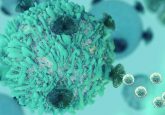‘Best evidence yet’ for survival benefit of AIs and bisphosphonates in postmenopausal breast cancer

Survival in postmenopausal women with early breast cancer could be improved if treatment included two inexpensive common agents, new analyses have suggested. The two reports, published today in The Lancet, are said to provide the best evidence yet that both aromatase inhibitors (AIs) and bisphosphonates can extend survival in this patient population.
These two meta-analyses were carried out by the Early Breast Cancer Trialists’ Collaborative Group – a collaborative group established to work to unite all the published evidence on the treatment of early breast cancer.
The first of these analyses explored data concerning 31,920 postmenopausal women with estrogen receptor (ER)-positive early breast cancer involved in randomized clinical trials comparing treatment with tamoxifen with AI treatment. Overall, they established that 5 years of treatment with more modern endocrine therapy such as AIs was associated with superior survival when compared with standard tamoxifen treatment.
Specifically, when compared with tamoxifen therapy, 5-year AI therapy reduced the chances of recurrence by 30% and lowered the risk of breast cancer mortality by approximately 15% throughout the decade after initiation of treatment.
Lead author of the study, Mitch Dowsett of The Royal Marsden and The Institute of Cancer Research, (London, UK) reported: “The impact of aromatase inhibitors is particularly remarkable given how specific these drugs are – removing only the tiny amount of estrogen that remains in the circulation of women after the menopause – and given the extraordinary molecular differences between ER-positive tumours. But aromatase inhibitor treatment is not free of side effects, and it’s important to ensure that women with significant side effects are supported to try to continue to take treatment and fully benefit from it.”
The second of these reports gathered data from 26 randomized trials with an aim of further establishing the risks and benefits of adjuvant bisphosphonate treatment in early breast cancer. Combining data relating to 18,766 women with breast cancer, the data demonstrated that 2–5 years of bisphosphonates treatment both reduced the risk of bone recurrence by 28% and significantly extended survival in postmenopausal breast cancer patients – 18% during the first decade postdiagnosis.
“Our results show that adjuvant bisphosphonates in postmenopausal women prevent around a quarter of bone recurrences and one in six of all breast cancer deaths in the first decade of treatment. These simple, well tolerated treatments should now be considered for routine use in the treatment of early breast cancer in women with either a natural or medically induced menopause to both extend survival and reduce the adverse effects of cancer treatments such as the AIs on bone health,” commented study lead author Robert Coleman of the University of Sheffield (UK).
Although these results were not reflected in premenopausal patients, in this wider breast cancer population, bisphosphonates were associated with a notable 17% reduction in recurrence of cancer in the bone. The overall benefits of bisphosphonates were not impacted by type of agent, treatment duration, size and spread of the tumor or ER positivity.
Richard Gray (University of Oxford, UK), author on both studies, commented on the potential benefit of both these drugs to breast cancer patients: “These studies provide really good evidence that both of these inexpensive, generic drugs can help to reduce breast cancer mortality in postmenopausal women. About two-thirds of all women with breast cancer are postmenopausal with hormone-sensitive tumours, so could potentially benefit from both drugs. The drugs are complementary, because the main side effect of aromatase inhibitors is an increase in bone loss and fractures, while bisphosphonates reduce bone loss and fractures as well as improving survival.”
Sources: Early Breast Cancer Trialists’ Collaborative Group. Aromatase inhibitors versus tamoxifen in early breast cancer: patient-level meta-analysis of the randomised trials. The Lancet doi: http://dx.doi.org/10.1016/S0140-6736(15)61074-1 (2015); Early Breast Cancer Trialists’ Collaborative Group. Adjuvant bisphosphonate treatment in early breast cancer: meta-analyses of individual patient data from randomised trials. The Lancet doi: http://dx.doi.org/10.1016/S0140-6736(15)60908-4 (2015); The Lancet press release via EurekAlert!





